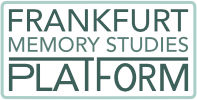Programming, Curating and Reconstruction as Elements of a Performative Practice of Film Historiography (Senta Siewert)
In the project I raise the question to which extent the practice of presenting and curating Expanded Cinema and Experimental films from the 1970s today, can be understood as a mode of historiography and a film archaeology using aesthetic means. I answer these questions through an examination of concrete curatorial concepts from selected film and video art institutions, whose archives and collections and their respective preservation and reconstruction practices I analyze from a comparative perspective.
When programmers, curators, scholars or archivists decide to select experimental films or Expanded Cinema works for cinemas, cinematheques and festivals, it provides archives with a better justification for the necessity of funding their restoration. This is important since in the most recent period, official funding to archives for documentations, restorations and digitisations have been restricted often due to government budget cuts. This means that the aesthetic or thematic decisions by the scholars and programmers have a significant influence on the decision-making process of archives. As a result, these films can be saved from decay and can thus remain as part of the collective memory. It is this practice that I conceive as a Performative Practice of Film History.


